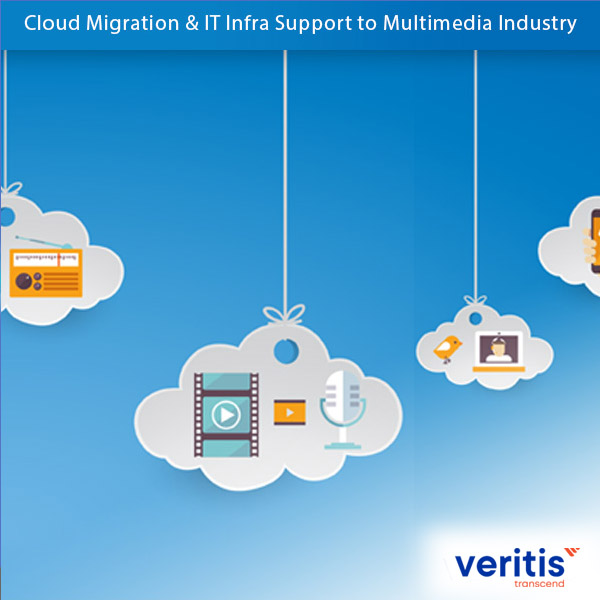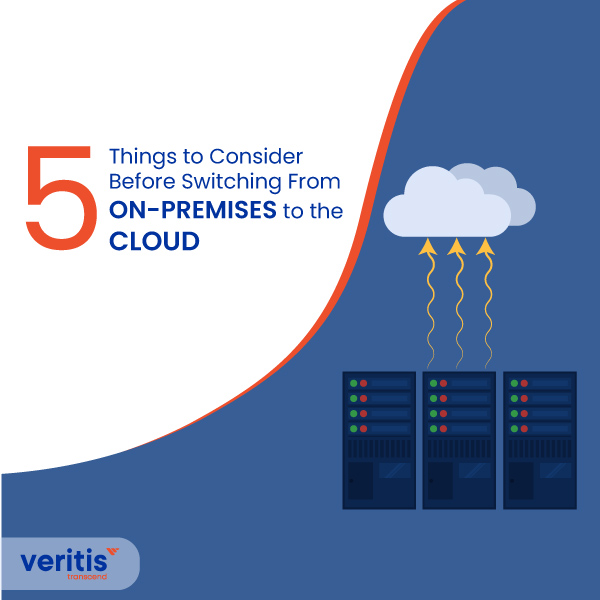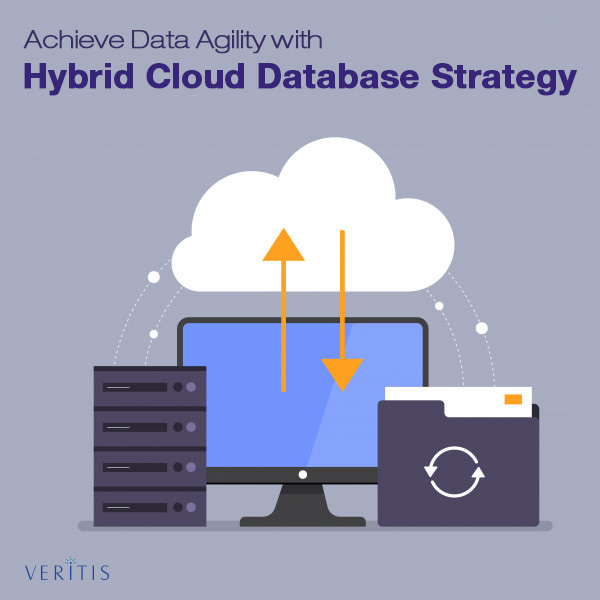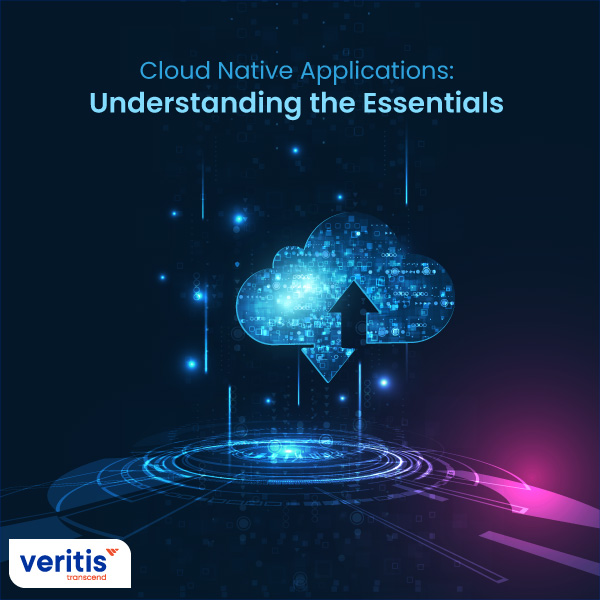Hybrid Cloud Services
Orchestrated Cloud Platform for Improved ProductivityAn Introduction to the Hybrid Cloud
A hybrid cloud refers to the combination of one or more public clouds with a private cloud platform. It utilizes both on-premises private cloud services and third-party, public cloud services, with orchestration between the two platforms for distinct functions. While non-sensitive operations use public cloud services, a private cloud is employed for sensitive operations.
In a hybrid cloud, data is securely stored in the private cloud, while the public cloud runs applications dependent on the data. Hybrid clouds simplify application deployment, provide greater agility, improve workflow processes, and reduce capital expenses.
A hybrid cloud requires API compatibility and reliable network connectivity to enable access and interaction between the private and public clouds.
Features and Benefits of the Veritis Hybrid Cloud Model
Veritis' hybrid cloud consulting services offer several features that bring multiple benefits to customers, including scalability, flexibility, security, and cost efficiency.
Scalability
Moving non-sensitive functions to the public cloud allows for seamless scalability, reducing demands on the private cloud. The scalability of platforms and infrastructure components ensures faster response times, reduced total cost of ownership (TCO), and higher end-user satisfaction.
Flexibility
Hybrid cloud provides operational avenues and efficient management of databases and applications, offering flexibility to customers.
Security
The hybrid cloud model ensures security for sensitive operations and compliance with data handling and storage regulations.
Cost Efficiency
Hybrid clouds enable centralized management, resulting in greater cost efficiency without compromising the security of sensitive operations.
Veritis Approach
Veritis offers a mix-and-match combination of hybrid cloud server architectures to create fully customized solutions based on customers’ unique requirements. Our hybrid cloud consulting approach decreases IT costs while increasing responsiveness to changing business requirements. Through expert cloud service management, we address data security, compliance, governance, and budgetary challenges.
Increased computing power, enhanced data management, improved security, and 100% availability are among the significant benefits of our hybrid cloud services approach.
Hybrid Cloud Use Cases
- Data Bursting and Scalability
- Data Backup and Recovery
- Compliance and Data Governance
- Dev/Test Environments
- Geographic Expansion
- High Performance
- Cost Optimization
- Data Synchronization





